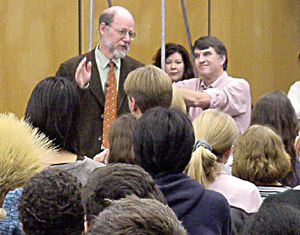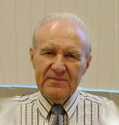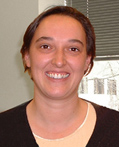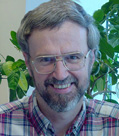Department of Biology
The Department of Biology has 65 active faculty members; 15 are located in the Whitehead Institute, 13 are located in the Center for Cancer Research, 5 are joint appointees with the Department of Brain and Cognitive Sciences, 2 are joint with Chemistry, 1 is joint with Biological Engineering, and 1 is joint with the Department of Civil and Environmental Engineering. Three faculty members also hold appointments in Biological Engineering. Including active emeritus faculty, the department includes 4 Nobel laureates, 24 members of the National Academy of Sciences, and 9 investigators of the Howard Hughes Medical Institute. The department has a preeminent national and international reputation in research and teaching and has been a leading contributor to the development and application of cellular and molecular biology.
Educational Activities
The Department of Biology is the third largest undergraduate major at the Institute and the largest in the School of Science. In AY2002–2003, 343 undergraduates registered in biology during the fall 2002 and/or spring 2003 semesters. Eighteen of these students left biology for another major during the year. Thirty-one students declared biology as a major during this academic year. The bachelor of science in biology degree was awarded to 101 students from September 2002 through June 2003: 86 in the Course 7 program and 15 in the 7-A program. Eighty-eight freshmen declared biology as their major for fall 2003.
A number of biology majors received awards in 2002–2003:
- Sonali Mukherjee, a senior from Yorktown, Virginia, received the Ragnar and Margaret Naess Award in Music and Theater Arts for exceptional talent and commitment to private performance study.
- Bob Yin, a senior from Staten Island, New York, received a Peter J. Eloranta Summer Research Fellowship for his work "Growing Up in the Shadows of the Cultural Revolution: Short Fiction Inspired by Personal Histories."
- Sandy Zhang, a senior in biology and biochemical engineering from Salt Lake City, Utah, received the Hans-Lukas Teuber Award for outstanding research and academics in brain and cognitive sciences.
- Aadel Chaudhuri, a junior in biology and electrical engineering and computer science from Salt Lake City, Utah, received the Barry Goldwater Scholarship and Excellence in Education Award from the School of Engineering, as well as a Writing and Humanistic Studies Prize for Engineering Writing (2nd Prize) in the Ilona Karmel Writing Prizes Competition.
- Michael Wongchaowart, a junior in biology, received a Robert A. Boit Writing Prize for an Essay (Honorable Mention) in the Ilona Karmel Writing Prizes Competition.
- Christen Gray, a junior in biology from Marietta, Georgia, received an Austin Kelly III/Richard Douglas Traveling Fellowship given to juniors for travel, which supports study in the humanities or arts.
- Lisa Mee-Hyun An, a sophomore in biology from Springfield, Virginia, received the 2003 Anthony Sun Internship Award.
- Johnathan King, a senior in biology from Plano, Texas, received the Sigma Xi Scientific Research Society Grant/Johnson and Johnson Research Excellence in Biomedical Engineering Award.
- Karolina A. Corin, a senior in biology and materials science from the Netherlands, received the Wunsch Foundation Silent Hoist and Crane Award for an undergraduate thesis related to materials handling.
The Biology Department presented the following awards and prizes:
- Two seniors, Caitlin Dwyer-McNally from Brockport, New York, and Julie Pinkston from Berwyn, Pennsylvania, received the John L. Asinari Award for outstanding research in life sciences.
- Naina Ahmad, a senior from Gulshan Dhaka, Bangladesh, received the Luria Prize for outstanding scholarship and research of publication quality.
- Sonali Mukherjee, a senior from Yorktown, Virginia, received the Ned Holt Prize for excellence in scholarship and service to the department and the MIT Community.
- Jason Kelly, a senior from Jupiter, Florida, received the Merck Award for outstanding research and academic performance in biophysical or bioinformatics sciences.
- Angela P. Won, a senior from San Francisco, California, received the Gene M. Brown Award for a senior who has both an outstanding academic record and has made important contributions to the biology teaching program.
The following 17 biology majors were chosen for Phi Beta Kappa: Roshni Aggarwal, Caroline Yung-Jye Chang, Suelin Chen, Chandra J. Claycamp, Susan Dong, Aimee R. Ginley, Ali Zul Jiwani, Philip J. Lee, Sing Your Li, Megha Padi, Albert Shieh, Booshan Tseng, Alpana A. Waghmare, Audrey Shiuan Wang, Jed Louis Weinstock, Sandy Zinyu Zhang, and Jessica M. Zmolik.
From July 1, 2001, to June 30, 2002, the department awarded a total of 21 PhD degrees and four SM degrees in biology. No degrees were awarded in the Joint Program in Biological Oceanography with the Woods Hole Oceanographic Institute (WHOI). The maximum number of PhD candidates registered in the Biology Department in 2002–2003 was 216, with another 36 in the joint program. The incoming class for fall 2003 will have 36 students in the biology doctoral program, with an additional 6 students in the Joint Program in Biological Oceanography with WHOI.
 Dr. H. Robert Horvitz, 2003 Nobel Laureate in Physiology or Medicine, addressing audience at reception in Koch Building. Dr. Robert Sauer, Head of Biology, stands next to Dr. Horvitz. |
Graham Walker has established an "Education Group," which is conceptually analogous to a research group. Composed of two full-time postdoctoral associates—Dina Gould Halme and Julia Khodor—and other postdoctorates and graduate students, the Education Group is principally focused on developing curricular materials for teaching introductory biology. Two of the several projects underway consist of a variety of web/internet-based personalized problem sets and a set of "recitation-section" lab experiments. These as well as all other curricular materials developed will be made freely available as part of MIT's OpenCourseWare initiative.
Research
The research activities of the department cover most areas of modern biology, including biochemistry, genetics, microbiology, cancer biology, cell and developmental biology, immunology, neurobiology, virology, and structural biology. The research achievements over the last year are too numerous to be discussed here, and only a few are listed. Chris Burge and his fellow researchers discovered a computational method to predict which sequences of genetic material get spliced out and which end up as the blueprint for life. Leonard Guarente's research established that caloric restriction prolongs life because it increases respiration, not because it decreases oxygen free radicals. Luk Van Parijs has been using the new technology of small interfering RNA to regulate the activity of killer T cells. This has had great therapeutic effects in preventing the development of diabetes in a mouse model of juvenile diabetes. David Page has shown that the Y chromosome uses palindromic sequences to repair itself via recombination and gene conversion. He hypothesizes that without these sequences, the Y chromosome would shrink and might be lost.
The Computational and Systems Biology Initiative (CSBi), which was launched last year, continues to make progress with the recent award of a major National Institutes of Health grant and a multimillion-dollar grant from an anonymous donor. Plans are underway for a new PhD program that will be jointly run by the Departments of Biology, Biological Engineering, and Electrical Engineering and Computer Science.
Personnel
Michael Yaffe was promoted to associate professor without tenure. Frank Gertler was promoted to associate professor with tenure. Steve Bell was promoted to full professor.
 Dr. Gene A. Brown, Professor Emeritus. |
David Sabatini arrived during the past year and set up his lab in the Whitehead Institute. He joined the department as an assistant professor.
This coming year will mark Gene Brown's 50th anniversary in the department. Gene has served the department as a faculty member, as executive officer, as chairman, and as the dean of the School of Science. Gene has also played a major role in our educational programs, both as an advisor and mentor to students and as an extraordinary teacher of biochemistry.
Honors and Awards
 Dr. Angelika Amon, National Science Foundation's Alan T Waterman Award winner. |
 Dr. Graham Walker, Howard Hughes Medical Institute Investigator. |
- Angelika Amon was awarded the Eli Lilly Company Research Award and Allan T. Waterman Award.
- David Bartel was awarded the AAAS Newcomb-Cleveland Prize.
- Chris Burge was named a Searle Scholar.
- Sallie Chisholm was elected to the National Academy of Sciences.
- Herman Eisen received an honorary degree (ScD) from Washington University in St. Louis.
- Gerald Fink received the Yeast, Genetics, and Molecular Biology Lifetime Achievement Award and was elected to the American Philosophical Society.
- Nancy Hopkins received the University of California San Francisco Medal and the Gordon Y. Billard Award.
- H. Robert Horvitz received the Nobel Prize in physiology or medicine, the Peter Gruber Foundation Genetics Prize, and the American Cancer Society Medal of Honor.
- Rudolf Jaenisch was awarded the Robert Koch Prize for Excellence in Scientific Achievement and the Charles Rodolphe Bruphacher Foundation Cancer Award, and he was elected to the National Academy of Sciences.
- Amy Keating was awarded the Robert A. Swanson career development professorship in the life sciences.
- Jonathan King was the recipient of MIT's Reverend Dr. Martin Luther King, Jr. Leadership Award and was named chair of the 18th International Phage/Virus Assembly Conference.
- Douglas Lauffenburger received the Biomedical Engineering Society Distinguished Lectureship Award.
- Susan Lindquist was elected to the American Philosophical Society and named one of the Fifty Most Important Women in Science by Discover Magazine.
- Troy Littleton received a David and Lucile Packard Foundation Research Fellowship. Harvey Lodish was elected president of the American Society of Cell Biology. He was also appointed to the Nominating Committee of the National Academy of Sciences and to the Advisory Board of the Life Sciences Research Institute, University of Michigan, as well as being appointed to the Scientific Advisory Board of Children's Hospital.
- Terry Orr-Weaver was elected vice-chair of the Scientific Advisory Committee of the Damon Runyon Cancer Research Foundation.
- David Page was named the Charlton lecturer, Tufts University School of Medicine, and president's guest lecturer, American Society for Reproductive Medicine.
- Alexander Rich received the New York University School of Medicine Biotechnology Achievement Award, the Lifetime Achievement Award from the Institute of Human Virology, the Lomonosov Large Gold Medal from the Russian Academy of Sciences, and the Passano Foundation's Passano Award.
- Robert Rosenberg received the Distinguished Alumni Research Award, George Washington University, and was elected to the Distinguished Researcher Society, George Washington University.
- Graham Walker was awarded a Howard Hughes Medical Institute professorship.
Robert T. Sauer
Department Head
Luria Professor of Biology
More information about the Biology Department can be found on the web at http://mit.edu/biology/www/.